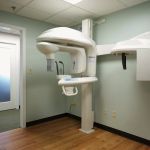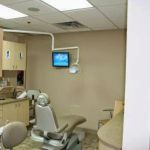Tips for Healthy Teeth and Gums: Your Guide to Oral Wellness
Maintaining healthy teeth and gums is essential for overall health and wellness. Yet, many people neglect the importance of oral hygiene beyond simply brushing their teeth. In this article, we will delve into the essential tips for healthy teeth and gums, highlighting not just the importance of brushing, but also other aspects of oral care that contribute to a vibrant smile. From diet choices to proper techniques, here are some actionable tips to ensure your oral health is at its best.
1. Brush Properly and Consistently
One of the fundamental steps to keeping your teeth and gums healthy is brushing. However, it’s not just about brushing your teeth — it’s about doing it properly. Many people brush too quickly or use too much force, which can cause damage over time. Here are the key points to remember:
- Brush for Two Minutes: The American Dental Association (ADA) recommends brushing your teeth for two minutes, twice a day. This ensures that you reach all areas of your mouth and thoroughly clean your teeth.
- Use a Soft-Bristled Toothbrush: A soft-bristled toothbrush is ideal for removing plaque without damaging your gums or enamel. Firm bristles can be too harsh on sensitive gums.
- Angle Your Brush: Hold your toothbrush at a 45-degree angle to your gums and use gentle, circular motions to clean both the fronts and backs of your teeth.
By following these tips, you ensure that your brushing routine is effective and will contribute to maintaining healthy teeth and gums.
2. Don’t Skip Flossing
Flossing is another key component of a good oral hygiene routine. While brushing removes surface plaque, flossing cleans the tight spaces between your teeth that your toothbrush can't reach. Regular flossing helps prevent gum disease and cavities by removing food particles and plaque buildup. Here’s how to floss correctly:
- Use a Proper Amount of Floss: Cut about 18 inches of floss and wind it around your fingers. Gently slide the floss between your teeth and curve it around each tooth in a “C” shape.
- Be Gentle: Avoid snapping the floss into your gums, as this can cause injury. Gently move the floss up and down along the sides of your teeth.
- Floss Once a Day: Make flossing a part of your daily routine to effectively remove debris and prevent gum disease.
Flossing might seem like an extra step, but it’s crucial for long-term oral health. It helps prevent gingivitis, periodontitis, and other dental issues that can arise from neglected spaces between your teeth.
3. Choose the Right Foods and Drinks
Your diet plays a significant role in the health of your teeth and gums. Eating the right foods and avoiding certain beverages can help protect your oral health and prevent issues like tooth decay and gum disease. Here are some helpful dietary tips:
- Eat Calcium-Rich Foods: Calcium helps strengthen your teeth and bones. Dairy products, leafy greens, and fortified foods are excellent sources of calcium.
- Limit Sugary Snacks and Drinks: Sugary foods and beverages promote the growth of bacteria that can lead to cavities. Try to limit your intake of sugary snacks, soda, and candy.
- Drink Water: Water helps wash away food particles and bacteria from your mouth, keeping your teeth and gums cleaner throughout the day. It’s also a great alternative to sugary drinks.
By adjusting your diet and making healthier food choices, you can improve the overall health of your teeth and gums, keeping them strong and resistant to decay.
4. Regular Dental Check-Ups
Even with a solid at-home oral hygiene routine, regular dental check-ups are essential to ensuring your oral health is on track. Routine visits to the dentist allow for early detection of any potential issues, such as cavities or gum disease. Here’s why these visits are important:
- Preventive Care: Your dentist can perform cleanings and check for early signs of oral health problems. Professional cleanings help remove tartar buildup that brushing alone cannot handle.
- Oral Cancer Screenings: Dentists screen for oral cancer during check-ups, ensuring early detection and better treatment outcomes.
- Education: A dentist can provide personalized advice about your oral health, offering recommendations based on your unique needs.
Schedule dental visits at least once every six months to maintain healthy teeth and gums and prevent serious dental issues.
5. Don’t Forget Your Tongue
Many people forget to clean their tongues, which is just as important as brushing your teeth. The surface of your tongue can harbor bacteria, leading to bad breath and an increased risk of gum disease. Use a tongue scraper or your toothbrush to gently clean your tongue daily. This step helps remove bacteria and improves overall oral hygiene.
6. Consider Using Mouthwash
Mouthwash is a valuable addition to your oral care routine. It can help reduce bacteria, freshen your breath, and promote healthy gums. Look for an alcohol-free mouthwash that targets both plaque and bacteria without irritating your gums. Use it after brushing and flossing to enhance your oral hygiene routine and maintain healthy teeth and gums.
Incorporating mouthwash into your daily routine can provide an extra layer of protection against oral health issues like gingivitis and tooth decay.
By following these tips for healthy teeth and gums, you can improve your oral hygiene routine and enjoy a healthier smile. Maintaining good oral hygiene doesn’t require complicated steps, but consistency is key. Don’t forget to brush and floss regularly, make smart dietary choices, and schedule those important dental check-ups. If you're looking for high-quality dental products or need professional dental services, visit Dentistry Toothtruth to explore the best options for your needs.







 Cash Family Orthodontics4.0 (141 review)
Cash Family Orthodontics4.0 (141 review) Dental365 - Bellmore4.0 (318 review)
Dental365 - Bellmore4.0 (318 review) Michael E Krone & Associates5.0 (39 review)
Michael E Krone & Associates5.0 (39 review) Rittenhouse Dental Group4.0 (91 review)
Rittenhouse Dental Group4.0 (91 review) Oral & Maxillofacial Surgery Associates4.0 (1440 review)
Oral & Maxillofacial Surgery Associates4.0 (1440 review) Dr. Geetha J. Damodaran, DDS5.0 (2 review)
Dr. Geetha J. Damodaran, DDS5.0 (2 review) The Importance of Oral Health Education During Pregnancy for a Healthy Pregnancy
The Importance of Oral Health Education During Pregnancy for a Healthy Pregnancy Best Tips for Brushing Your Teeth Properly for Healthy Gums: Essential Techniques for Oral Health
Best Tips for Brushing Your Teeth Properly for Healthy Gums: Essential Techniques for Oral Health Why Skipping Dental Checkups Can Lead to Bigger Oral Health Problems
Why Skipping Dental Checkups Can Lead to Bigger Oral Health Problems Advantages of Porcelain Dental Restorations
Advantages of Porcelain Dental Restorations How Can Diabetes Cause Tooth and Gum Problems? Preventing and Managing Oral Health Issues
How Can Diabetes Cause Tooth and Gum Problems? Preventing and Managing Oral Health Issues Healthy Habits for Promoting Good Oral Health and Hygiene: Tips for a Healthy Smile
Healthy Habits for Promoting Good Oral Health and Hygiene: Tips for a Healthy Smile